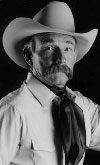As far back as 1628, “husbandry” was defined as agricultural produce, land under cultivation, farming. The word husband also implies a caretaker of land and livestock, a hands-on activity.
From shepherds watching their flocks by night as described in the Bible up to farm managers milking cows, showing fat steers and roping at the branding fire, animal husbandry was an appropriate title for a bachelor’s degree for a century.
As our knowledge of genetics, physiology, nutrition and medicine grew, many students began to specialize.
Now we have to mention a few: range management, horticulture, veterinary technology, statistics, parasitology, economics, wool growing, poultry and hogs.
To be able to master the information required for a specialty, it became apparent that an animal husbandry degree did not describe the variety and extent of the knowledge required.
A basic understanding of math, chemistry, anatomy, biology, both animal and plant, and economics soon became the norm. Their level of learning expanded, and eventually the official conversion from husbandryman to scientist became a more accurate description.
I like to think, when I look at the huge industry that animal production has become, the description of husbandryman still has a place.
Much of ag production has been mechanized: dairy barns, confinement operations, computer-driven self-feeders in chicken houses and in hog barns, hydraulic chutes and covered barns, for example.
But no matter the beast, all along the way the hands-on touch of a human is involved. The animal we saw or felt or tended to: milked three times a day, observed from horseback in a feedlot pen, walked through the veal barn, feeder pigs, chicken house, checked farrowing crates, layer hens, calving barns, sheep jugs, while feeding hay, plowing snow or shoeing the horse.
These procedures cannot be learned from a book. They are learned from experience. It defines the difference between raising livestock with quality checks on a daily basis by a savvy husbandryman versus the derogatory characterization of the process as “factory farming.”
You cannot just turn on a button at one end of the hog barn, let robots take over and take him off at the other end cut up and wrapped.
So, though we proudly consider ourselves knowledgeable animal scientists, we could and should still be considered compassionate husbandrymen first. They go together. ![]()







